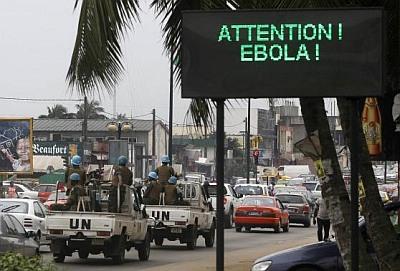 Results from the first phase of the clinical trial of an Ebola vaccine based on the current strain of the virus suggests it is safe to use and provokes an immune response in recipients, Chinese scientists say.
Results from the first phase of the clinical trial of an Ebola vaccine based on the current strain of the virus suggests it is safe to use and provokes an immune response in recipients, Chinese scientists say.
Until now, all tested Ebola virus vaccines have been based on the virus strain from the Zaire outbreak in 1976.
A team of researchers, led by Professor Fengcai Zhu, from the Jiangsu provincial centre for disease prevention and control in China, tested the safety and immunogenicity of a novel Ebola vaccine, based on the 2014 Zaire Guinea Ebola strain, and delivered by a virus-like structure (known as a recombinant adenovirus type-5 vaccine).
The experimental vaccine was developed by Beijing Institute of Biotechnology in Beijing, China, and Tianjin CanSino Biotechnology in Tianjin, China.
Researchers randomly assigned 120 healthy Chinese adults in equal numbers to receive placebo, a low dose, or high dose of the vaccine.
The randomised, double-blind, placebo-controlled, phase one clinical trial took place at one site in Taizhou County, Jiangsu Province, China.
Researchers found that 28 days after vaccination, 38 out of 40 participants in the low-dose group and all 40 of those in the high-dose group had a positive immune response to the vaccine, with participants in the high-dose group producing higher quantities of antibodies than those in the low-dose group.
No specific immune response was recorded in the placebo group, according to the results of the phase one trial published in The Lancet.
The study does not show whether the level of immune response observed might ultimately be able to offer protection against Ebola virus, and previous trials of this type of vaccine have suggested that pre-existing immunity to the virus vector used to deliver the vaccine may affect its ability to protect against the virus.
However, the high dose of vaccine used in the study appeared to partly circumvent pre-existing immunity to the vector, because participants in the high-dose group had a 100 per cent response rate, with no resultant increase in adverse events, researchers said.
It will only be possible to assess the vaccine's protective ability with further trials in Africa, researchers said.
Moreover, previous research has indicated that this type of vaccine may increase the risk of HIV acquisition, so future trials will need to take this into account.
"On the basis of our findings, we believe that the Ebola vaccine we assessed has some potential, and a significant advantage of this type of vaccine is that it is stable and much easier to store or transport in tropical areas with inadequate cold-chain capacity, such as Africa," Zhu said.
"However, whether this candidate vaccine could become a final vaccine for widespread use against Ebola outbreaks is still uncertain, because of the issues of HIV-1 acquisition rates and the pre-existing immunity, especially in west Africa," Zhu said.







 © 2025
© 2025